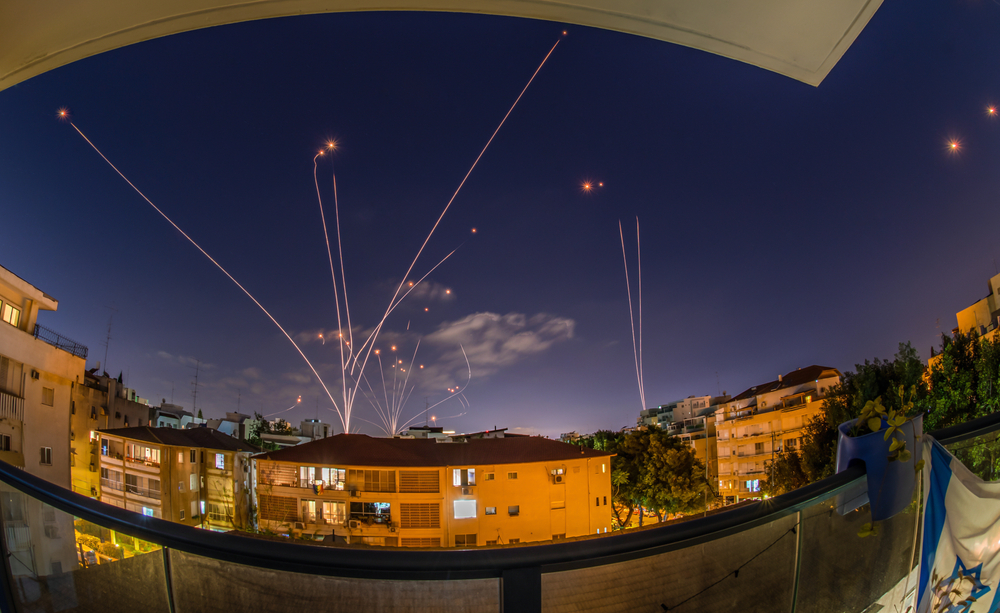The recent escalation in conflict between Israel and Gaza has spotlighted Israel’s AI-integrated air defense system, Iron Dome.
The Israeli Defense Force (IDF) Iron Dome defense system intercepts the relentless rocket launches from Gaza, which the military reports has a 90% success rate in intercepting Hamas and Hezbollah rockets.
Iron Dome can also intercept and destroy mortars and other forms of low-flying weapons, including drones.
What is Iron Dome?
Iron Dome is tasked with the interception and destruction of incoming short-range rockets and artillery shells before they can inflict harm.
It employs radar technology alongside predictive analytics and machine learning. The systems analyze variables like speed, weather, and size to precisely predict the trajectory of incoming rockets.
If an incoming rocket is projected to hit unpopulated terrain or is assessed to cause minimal damage, the system refrains from taking action.
AI is deeply woven into Iron Dome:
- Accuracy: AI-driven algorithms meticulously process radar and other sensor data, enabling the system to precisely track inbound missiles. These algorithms facilitate the determination of the optimal intercept moment, bringing Iron Dome’s interception success rate to some 90%.
- Efficiency: AI efficiently fires interceptor missiles to prioritize more imminent threats.
- Expanding defense range: The traditional role of Iron Dome has expanded to tackle new-age threats. AI is at the forefront of devising algorithms that can detect and counter drones and other low-altitude threats, which are emerging as significant challenges to conventional air defense frameworks.
As AI’s role on the battlefield evolves, so do the ethical dilemmas associated with it, such as the development of autonomous weapons capable of deciding to kill targets without human intervention.
Israel’s AI-Integrated military operations
Beyond Iron Dome, AI is deeply embedded within the IDF’s strategic planning and operations.
AI is employed to streamline wartime logistics, expedite decision-making, and select strategic targets.
The IDF employs an AI-driven recommendation system for air strikes called Fire Factory, which processes vast amounts of data to select targets. Post-identification, Fire Factory assists in logistics like calculating ammunition loads, assigning targets to military drones and jets, and developing operational schedules.
According to Bloomberg, Israel’s AI systems are refined using countless hours of footage, helping them distinguish between individuals and objects. The systems, once live, process extensive data, including drone footage, satellite imagery, electronic signals, and online communications.
Col. Uri, who spearheads the army’s digital transformation unit, mentioned, “What used to take hours now takes minutes, with a few more minutes for human review.”
Moreover, Israel is leveraging facial recognition technology to screen border populations for Palestinians.
One such initiative, dubbed “Blue Wolf,” has been in effect for over two years, positioning itself as an anti-terrorism tool. In March this year, Amnesty International said Blue Wolf was “entrenching apartheid.”
US backing
Although initially developed independently by Israel, Iron Dome started receiving US financial support in 2011. In 2016, the US pledged some $39 billion of military aid to Israel spanning 2019 to 2028.
Israel aims to be at the vanguard of AI warfare and autonomous combat decision-making. Eyal Zamir, a retired army general, expressed at the Herzliya Conference, “There are those who see AI as the next revolution in changing the face of warfare in the battlefield.”
The US is also investing in AI-related weapons and battlefield strategies, with the Air Force successfully testing the first autonomous jet earlier in the year.
Palantir’s CEO Alex Karp urged forth US investment in AI weapons, soberly advising the government, “Our adversaries will not pause to indulge in theatrical debates about the merits of developing technologies with critical military and national security applications. They will proceed.”





